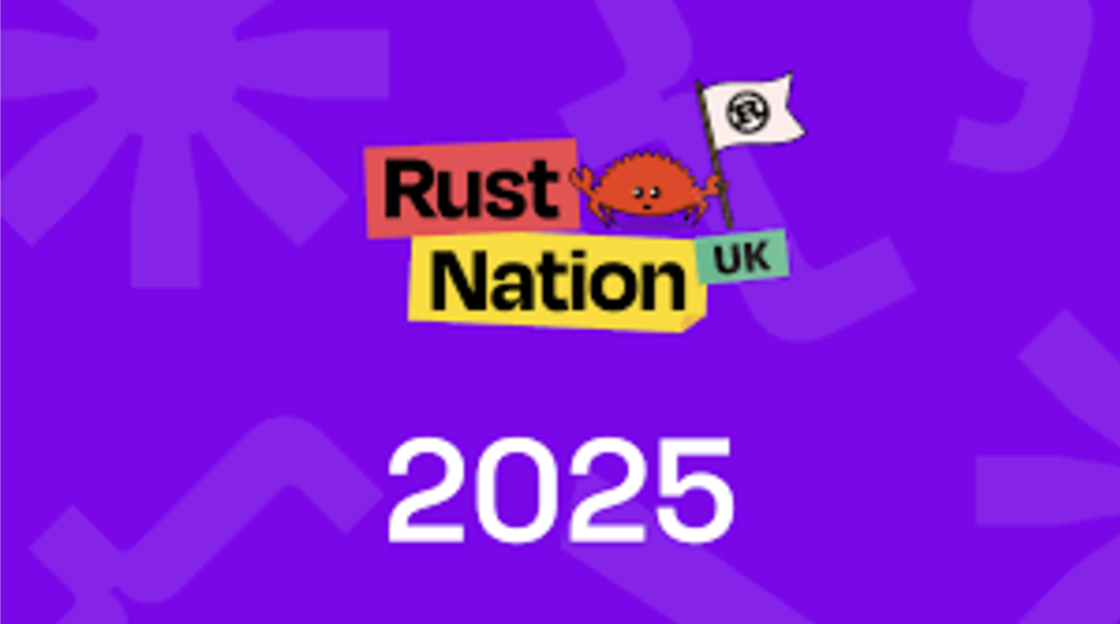The Rust Review: Essential Rust Crates with Maksim Gritchin
4th June, 2024 5 min
Welcome to the sixth edition of our Rust Review series, offering an in-depth exploration of Rust programming with guidance from industry experts. In this edition, we're excited to feature our new guest blogger, Maksim Gritchin. Maksim, a former Rust backend engineer and now an IT consultant for technical upgrade projects for a leading urban developer company, will be guiding us through "Essential Rust Crates." Join us as we delve into his insights, experiences, and the story behind his code. This chapter provides a genuine glimpse into the practical side of Rust development.
Introduction
Rust is a programming language known for its focus on safety and performance. One key feature of Rust is its use of "crates" — packages of code that developers can share and reuse. Crates help Rust developers by providing ready-made solutions to common programming tasks which can speed up the development process and enhance code quality. In this post, I’ll discuss some of the most important crates that every Rust developer should know about. These crates are essential tools that can help solve various common programming challenges in Rust projects.
Serde
Serde is one of the most essential crates for any Rust developer. It stands out for its ability to serialize and deserialize data, a fundamental requirement for many applications that deal with data exchange formats like JSON, XML, or custom binary formats. For example, when developing a web application or a service that consumes JSON data from APIs, Serde allows you to convert data between JSON text and Rust structs, ensuring type safety and data integrity.
Reqwest
Handling HTTP requests is a common requirement for modern applications, and Reqwest provides a powerful yet simple solution for this in Rust. It is a high-level HTTP client that supports both synchronous and asynchronous requests, making it versatile for various types of applications. Whether you’re developing a simple script to consume an API or a complex web service, Reqwest simplifies the task of making web requests and handling responses. It integrates well with Serde for deserializing responses into Rust data structures, making it ideal for network-related operations.
Anyhow
Error handling is a critical aspect of software development, and Anyhow provides a flexible way to handle errors in Rust applications. It is particularly useful in applications where error handling can become complex or where different kinds of errors need to be treated in a uniform manner. Anyhow allows for easy error propagation, which helps in maintaining clean and manageable code. Its use is especially prevalent in application prototypes or scripts where quick and effective error handling is needed without the overhead of creating custom error types.
Tokio
Tokio is a must-know crate for any Rust developer working with asynchronous operations. It provides an event-driven, non-blocking I/O platform which is essential for developing high-performance network applications. Tokio supports a wide range of asynchronous features, including TCP and UDP sockets, timers, and filesystem operations, among others. For developers building real-time applications such as chat servers or live data feeds, Tokio offers the necessary tools to handle multiple tasks concurrently without blocking, leveraging Rust’s safety features to ensure robustness.
Chrono
Chrono is the most comprehensive date and time handling library available for Rust. It provides powerful and flexible tools for managing dates, times, and durations, including parsing and formatting capabilities. Chrono supports both the Gregorian calendar and ISO 8601 date and time standards, making it suitable for a wide range of applications, from simple date manipulations to complex scheduling systems. Whether you need to calculate the difference between two dates, format timestamps for logging, or handle time zones and daylight saving time transitions, Chrono provides a reliable and easy-to-use solution.
Log
Log is the standard logging facade for Rust, providing a consistent and extensible approach to logging across various Rust projects. It defines a set of macros for logging at different levels (e.g., error, warn, info, debug, trace), which can be used throughout your code to record valuable diagnostic information. The Log crate itself is agnostic of the actual logging implementation, allowing developers to choose from multiple compatible backends such as env_logger, fern, or slog. This flexibility ensures that you can integrate logging into your application in a way that best suits your needs, whether for simple console output or complex structured logging systems.
Axum
Axum is a relatively newer addition to the Rust ecosystem but has quickly become essential for web development. Designed to make the most of the async and await syntax, it facilitates building efficient and lightweight web applications. Axum’s design focuses on ergonomics and modularity, allowing developers to easily compose solutions for complex web applications. It integrates smoothly with Tokio, providing a powerful combination for building scalable web services that require high concurrency and low latency.
Tonic
For developers interested in building microservices or distributed systems, Tonic is an invaluable tool. It is a gRPC framework for Rust built on top of Hyper and Tower and is fully interoperable with other gRPC applications in different languages. This makes Tonic perfect for scenarios where Rust services need to communicate with services written in other languages, ensuring seamless cross-language service integration. Tonic supports both client and server-side streaming, making it suitable for high-performance network applications that require robust and efficient communication mechanisms.
Rayon
Rayon is a data parallelism library that makes it easy to convert sequential computations into parallel ones. This crate is especially useful for applications that need to process large amounts of data or perform computationally intensive tasks. By using Rayon, developers can leverage the power of multicore processors to speed up operations significantly. Rayon provides a simple and intuitive API, allowing you to parallelize loops and other iterative computations without having to deal with lower-level threads and synchronization directly.
Tracing
Tracing is a framework for instrumenting Rust programs to collect structured, event-based diagnostic information. It is particularly useful for debugging and monitoring asynchronous applications. Tracing allows developers to gain insight into the execution of their programs by providing detailed logs and spans. These logs can be used to track the flow of a program and understand the context in which events occur. This makes Tracing an invaluable tool for performance tuning and identifying bottlenecks in complex systems.
SQLx
SQLx is an async, pure Rust SQL crate featuring compile-time checked queries without a DSL. It supports various databases, including PostgreSQL, MySQL, and SQLite. SQLx’s type-safe query macros ensure that SQL queries are checked at compile time, reducing runtime errors and enhancing code reliability. It integrates well with Tokio, allowing for efficient database operations in asynchronous Rust applications. SQLx’s focus on safety and performance makes it an excellent choice for developers building data-intensive applications.
Error-Stack
Error-Stack is a library for building rich error reports in Rust applications. It allows developers to create detailed error messages that include backtraces, context, and underlying causes. This helps in diagnosing and troubleshooting issues more effectively. Error-Stack is designed to work seamlessly with other error handling libraries, providing a comprehensive solution for managing errors. Its ability to capture and report detailed error information makes it a valuable tool for maintaining robust and reliable Rust applications.
Conclusion
The Rust crates discussed here represent some of the most fundamental and widely used packages in the Rust ecosystem. Each crate has its unique role and can significantly enhance the functionality and performance of Rust applications. Whether you are building simple utilities or complex high-performance systems, these crates provide the tools necessary to build reliable and efficient software. Learning and integrating these crates into your projects will undoubtedly be a valuable investment in your development skills in Rust.
If you're interested in becoming a blogger for the Rust Review series, please reach out to Charley Dowsell. If you're a Rust professional seeking new opportunities or a hiring manager looking to recruit skilled Rust developers, we're here to assist. Don't hesitate to contact us for your talent needs or career aspirations.



